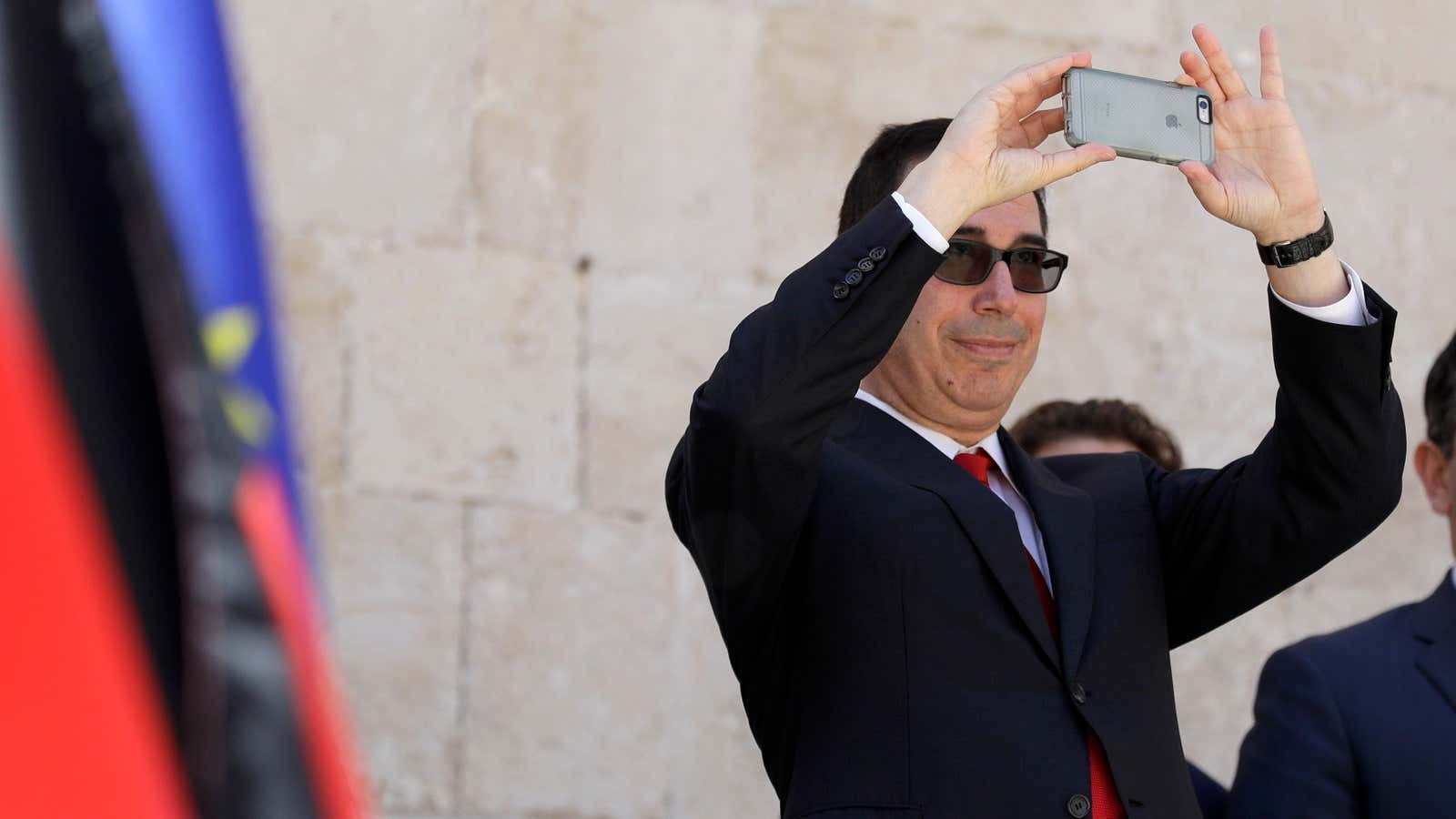The West’s most powerful countries are decidedly unhappy with North Korea using the offshore world to avoid sanctions—and they have a terse statement to prove it.
“North Korea does little business in its own true name and uses a network of agents, front and shell companies, and complex ownership structures to access the international financial system,” the G7’s finance ministers wrote April 18.
Who’s to blame? Apparently, an unspecified group of countries not following UN Security Council sanctions. And, just maybe, the G7’s own financial institutions. But it’s OK—the seven wealthy democracies say they’ll fix this with a plan to “engage and share information” with their own banks, and “expose North Korea’s deceptive financial practices.”
There’s a “certain level of hypocrisy” in the statement, says Maggie Murphy of Transparency International: Unmentioned is the G7’s failure to live up to its own promises on fighting global corruption, as the NGO details in a new report.
In 2014, the G20—the group of the world’s richest countries, including all the G7—committed themselves to “leading by example” and putting in place a set of crucial anti-corruption measures (pdf) that would let them know who actually owns companies registered in their countries. That information is essential if you want to know when the real owner of a seemingly harmless business is actually a regime like North Korea, with whom you’re enmeshed in a war of words, technology and ideology.
The G20 called the issue a “high priority.” “They described it to us as ‘critical,’ an issue that was fundamental to making the system not be abused,” says Murphy, who was co-author of the Transparency International report. However, the report found that four years later, 11 of the G20 countries had “average” or “weak” systems in place. Somewhat ironically, Canada—which issued the G7 statement on North Korea—had the worst system, alongside South Korea.
The US has had no shortage of recent cases that show the dangers of corporate secrecy. In June 2015, for example, a court found that Iran had been evading American sanctions for 20 years by owning a Manhattan skyscraper worth more than $500 million through US shell companies. Iran had been using the building as a slush fund, raking in millions per year in rent—exactly the kind of move the G7 complains about.
States like Delaware, Nevada, and Wyoming remain permissive on company transparency, even when it can pose national security risks. While talking up Facebook’s defenses in its “arms race” against Russian trolls this month, Mark Zuckerberg was forced to admit to Congress that the tech giant has no way of protecting against the Kremlin using shell companies to hide its involvement.
